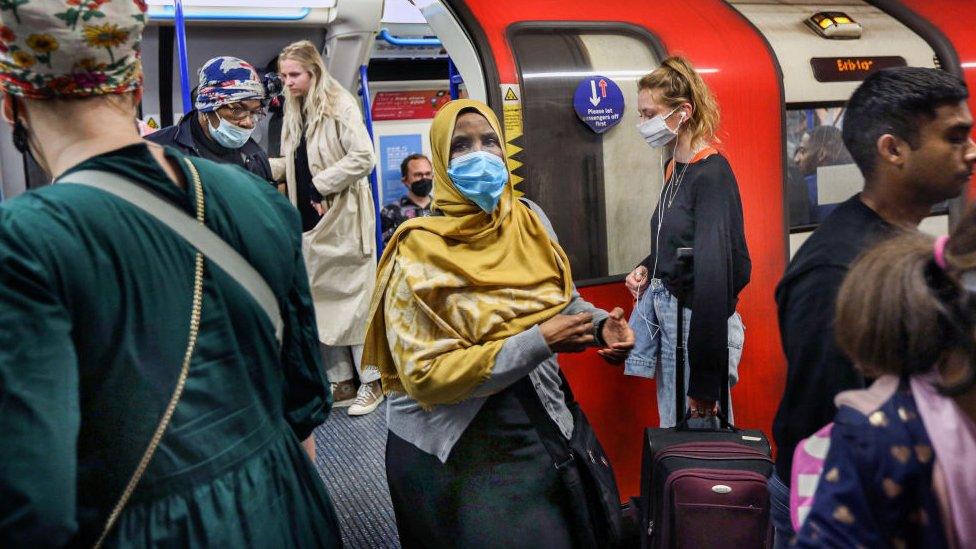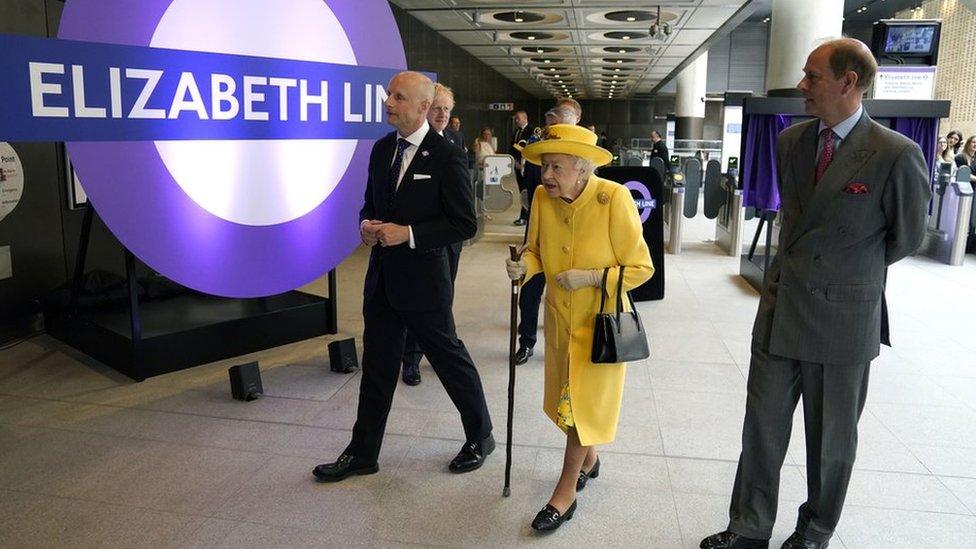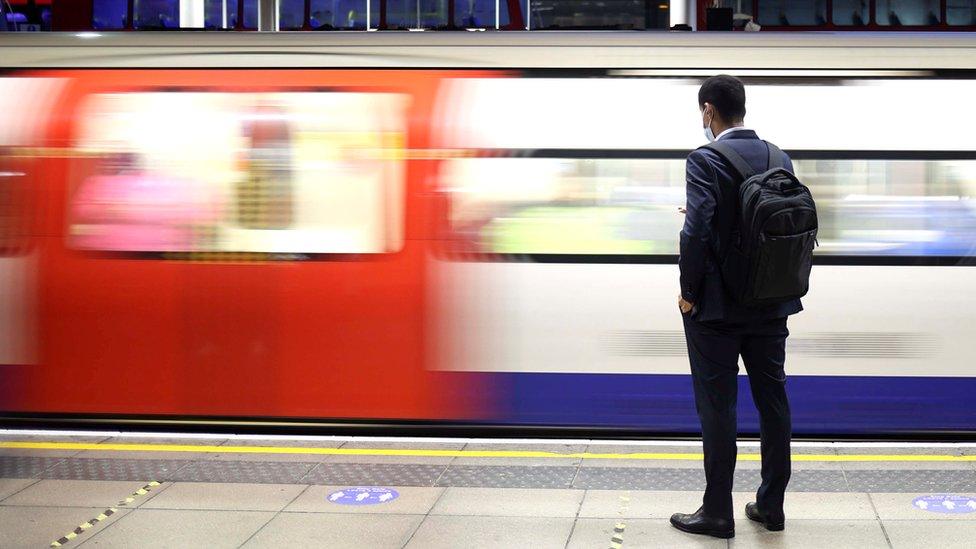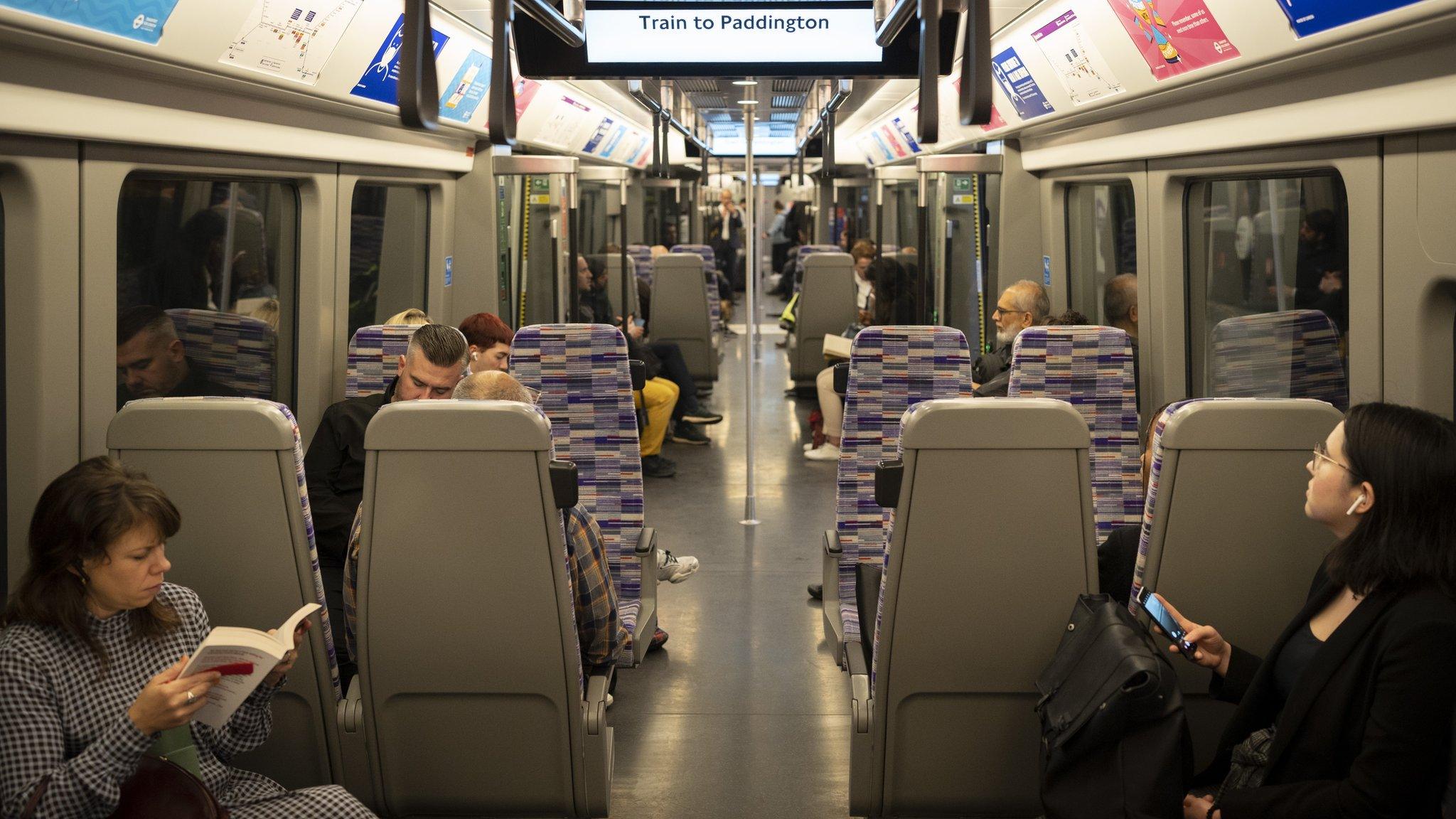Transport for London: Government funding deal extended again
- Published

TfL says it has reduced its annual running costs by more than £1bn over the past five years
Transport for London's (TfL) emergency funding deal with the government has been extended by two weeks.
The current financial deal had been due to run out on Wednesday but will now continue until at least 28 July.
The Department for Transport said TfL was yet to show evidence it had found £400m of savings - a condition of the last bailout. TfL denies this claim.
TfL is facing a £2bn budget black hole and has warned of massive cuts to services unless it gets more help.
There have been repeated rows with the government over the funding of TfL and the cause of its financial woes.
The Department for Transport (DfT) has provided close to £5bn in emergency funds since May 2020, in response to the impact of the Covid-19 lockdowns.
Under the terms of the latest deal, the government is demanding that TfL finds the £400m of savings in the current financial year.
Mayor of London Sadiq Khan must consult with the DfT over ways to raise at least £500m in additional yearly revenue for TfL from next year.

TfL has said that cutting all "uncommitted" Healthy Streets funding, such as for cycling schemes, could save about £500m
A spokesperson for the DfT said: "TfL have been unable to provide information sufficiently demonstrating that conditions outlined in the current settlement are on track and reassure the government that any long-term settlement will be in the interest of all UK taxpayers."
A TfL spokesperson said: "There is no UK recovery from the pandemic without a London recovery and there is no London recovery without a properly funded transport network in the capital."

Analysis
By BBC London transport correspondent Tom Edwards
This is Groundhog Day for the bailout saga, with yet another short-term extension to the existing deal.
Many commentators will say this is no way to run a transport system, as without a long-term deal TfL cannot plan anything.
There seems to be a sticking point around pension reform, with the government putting pressure on the mayor to make TfL pensions "financially sustainable".
So far Mr Khan has resisted - aware of the unions' reaction to any pension changes.

The TfL spokesperson added: "Whilst in receipt of government support, we have worked hard to progress all conditions placed on TfL, and continue to maintain that we have met them all.
"It is essential London receives the sustained long-term government funding that is vital for the coming years if a period of 'managed decline' of London's transport network is to be avoided."

The Elizabeth line, a new revenue stream for TfL,carried more than a million passengers in its first five days of operating
Unions have warned public transport across the capital will grind to a halt without a long-term financial plan.
TfL has previously said that cutting all "uncommitted" Healthy Streets funding, such as walking and cycling schemes, could save about £500m.
It is holding a public consultation on cuts to London's bus services, which it has been warned could result in 16 routes being axed entirely and 78 routes being amended.

Follow BBC London on Facebook, external, Twitter , externaland Instagram, external. Send your story ideas to hellobbclondon@bbc.co.uk, external
- Published28 November 2021

- Published6 December 2021

- Published18 November 2021

- Published30 May 2022
